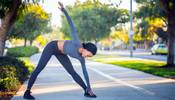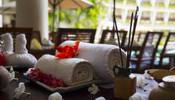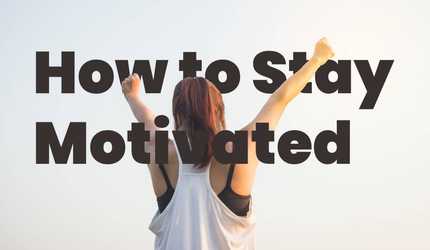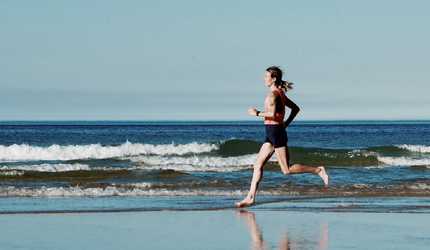Massage for Runners: The Psychological Benefits
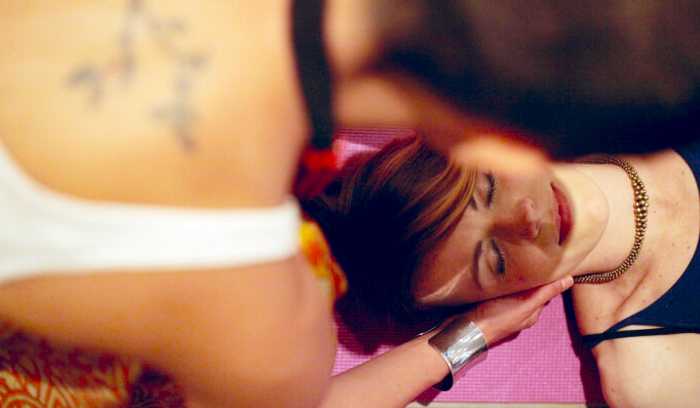
Contents
Massage is a popular race recovery method for runners of all levels. Post-race massage can be beneficial for a number of reasons. It can improve range of motion, reduce pain and swelling, and improve blood circulation. It is also great for improving mental well-being by reducing stress and anxiety.
See our Mental Health page for other articles on how to stay healthy.
The Importance of Massage for Runners
Runners often focus on the physical benefits of massage. Generally paying more attention to the results such as improved flexibility and reduced muscle soreness. Interestingly massages can have significant psychological benefits. A study of cross-country runners found that those who received regular massages were more likely to report feeling less anxious and more confident than those who did not receive massages. They were left feeling more mentally relaxed and less stressed after the massage.
This makes sense once you see the science behind it. A massage increases your body’s levels of oxytocin-A hormone released during skin to skin contact, which produces a feeling of closeness and bonding. This can help you recover from the inevitable setbacks that occur during training by providing a sense of calm and relaxation.
Massage can also help with pain relief by stimulating the release of endorphins which can reduce the amount of pain you feel in the same way as an opiate drug. Not surprisingly, regular massage therapy can also lower your blood pressure and elevate your mood.
For runners who are struggling with motivation or confidence, massage can be a powerful tool to help you get back on track. If you’re looking to improve your running, consider adding massage to your training regime.
Rest and Repair & Mental Health
Although initially massage wasn’t designed to send you to sleep, the effects of increased blood circulation, relaxed muscles and lowered heart rate can help you sleep more easily. The psychological affects of sleep deprivation can effect us massively and significantly impact our daily mood. A lack of sleep also hinders our ability to form new human memories. It can also lead to poor cognitive functioning and performance – i.e. forgetfulness, making mistakes and slower thinking.
This impact on cognition and performance will have a negative effect on training. It can wreck your motivation to work out, and leave you less likely to complete a training session. Stanford University carried out a study on a men’s basketball team in 2011. The aim was to investigate the effects of sleep extension over multiple weeks on specific measures of athletic performance as well as reaction time, mood, and daytime sleepiness. They found that when individuals in the team increased their sleep to 10-hours a night they ran faster in both half-court and full-court sprints. As well as that, their shooting improved by at least 9% for both free throws and three-point shots.
Sleep is also essential for muscle building and recovery. Muscles grow and repair when you are asleep, and your body is also working hard at helping to offset injury. A 2019 study published in the Orthopaedic Journal of Sport found that athletes who slept eight hours a night lowered their risk of injury by an incredible 61 per cent.
Reduced Stress Levels
Whilst some stress can be advantageous to training – helping you push to the next level and run that next mile. Too much stress can be a hinderance. It can get to the point that stress affects your training.
Stress affects the bodies ability to regulate the stress hormone cortisol, which influences your metabolism, immunity, sleep cycle and blood pressure. Too much cortisol can leave you feeling run-down, tired, and at risk of weight gain. It also has the annoying ability to distract your mind and overwhelm your body. Apart from reducing your motivation, you’ll have a hard time reaching your running goals when your mind is elsewhere.
This is where massage comes in. It has been proven to reduce cortisol levels by as much as 30 percent. The act of touch and rhythmic kneading of massage helps the body to relax. This emotional response is triggered by the body’s natural happiness and relaxation hormone – serotonin. When the body releases serotonin, it helps stabilise our mood and also keeps eating, digestion, and sleeping in check.
A study published in 2020 by psychologists at the University of Konstanz in Germany found: “you don’t need a professional treatment in order to relax. Having somebody gently stroke your shoulders, or even just resting your head on the table for 10 minutes, is an effective way to boost your body’s physiological engine of relaxation.”
What Are the Best Types of Massage for Runners?
Unfortunately, there is no one-size-fits-all answer to this question. The best type of massage for runners depends on the specific needs and preferences of the individual. However, there are some more common types of massages that can be beneficial for runners. These include Swedish massage, deep tissue massage, and trigger point massage.
In addition to the above and slightly more focused on state of mind, many massage therapists will work around the head, face, neck and shoulders. This is where people often carry the most amount of tension caused by stress. This tension can often result in headaches, tightness around the jaw and teeth grinding. Massage is a great solution for reducing these symptoms of tension.
Swedish Massage for Runners
Swedish massage is a gentle type of massage that helps relax the muscles and improve blood circulation. Great for relaxing and sleep! It is more well know than some of the other massage styles. Usually associated with some good old pampering in the spa.
This sort of relaxing massage can be particularly beneficial before a competition. The long flowing strokes used in Swedish massage help release muscle tension and increase blood flow. Increased blood flow means the muscles get the oxygen they need, while simultaneously reducing the amount of lactic acid.
It is best to book in a Swedish massage a few days before a race. The night before may leave you a little too sluggish!
Deep Tissue Massage
Deep tissue massage can be helpful for runners who have tight muscles from running or who are recovering from an injury. The massage targets the deep layers of fascia and muscles. The massage works the entire muscle, helping to recover after intense periods of training.
Generally tapotement movements are used at the end of a session. The purpose of this is to stimulate the skin and muscle to leave you feeling energised. Using the edge of the hand, these movements are quick and choppy.
Deep tissue massage should be on your list to book in every few months (or a couple of times a month, if you are able). However make sure to wait 47-72 hours before or after a race, otherwise it may cause irritation and delayed soreness of the muscles. As this is such a specific type of massage that is fairly intense, it would be worth working out an appropriate schedule with your therapist.
Trigger Point Massage for Runners
Also know as trigger point therapy, this massage targets knotted muscles and areas of pain on the body. Trigger points are hyper-irritable spots in tight muscle bands. They can cause muscular weakness and cause pain as well as tenderness to appear other areas of the body.
Deep pressure is used to loosen and release knots, and it a great way to treat injuries such as a calf strain or hamstring injury.
Sports Massage
Carried out by a professional, a sports massage targets specific muscles used most frequently in running such as in the hips and legs. The mechanism of this type of massage is intense and includes deep pressure, sweeping strokes; in combination with trigger point therapy as mentioned above.
The purpose of a sports massage is to help prevent or treat an injury, reduce tension, and release toxins. Getting this massage whilst running long distances in training can promote faster recovery.
When is the Best Time to Schedule a Massage as a Runner?
The rule of thumb is to never schedule a massage too close to or after a big race or intense workout. Think 2-3 days. This is because massage is a workout in itself. The deep pressure releases waste products at a cellular level and stimulates your muscles in a way that can leave them feeling sore. Getting a massage too close to or just after a big run can be counterproductive and lead to further damage to your muscles and tissues.
It also depends on the type of massage you are wanting. A Swedish massage immediately before a race is probably not a great idea. But if you are stressed between training sessions and don’t mind a slower session the next day then go for it!
As long as you follow the above advice, and speak to your massage therapist you should be set! It may be costly and to time consuming to get a massage every week, but every couple of weeks could be a happy medium.
Add Massage to Your Running Training Plan
We include massage in our Beginners Guide to Training for a Marathon. Resting on the lead up to race day is important for both your body and mind.
Recovery is a part of any runners’ programme both while in training or out of training. It can have a massive positive impact on your state of mind, and improve your training and race performance. Mental health is not a new conversation, and it is not going away. Especially as running is known for its mental health benefits already!
The benefits of massage therapy – like reducing pain and risk of injury – speak loudly to runners of all levels. Massage should not be considered a luxury but as an essential part for optimal performance.
